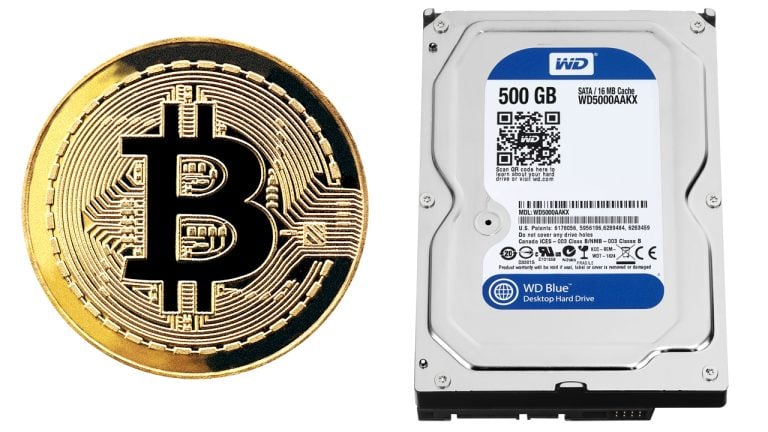The Size of Bitcoin’s Distributed Ledger Nears a Half Terabyte
Publikováno: 15.10.2022
 Well over a decade ago, on January 3, 2009, the size of the Bitcoin blockchain was 0.285 kilobytes (kB) or around 285 bytes. Today, however, the blockchain’s ledger is nearly half a terabyte, or roughly 432 gigabytes. Bitcoin’s Blockchain Nears 500 Gigabytes in Size On October 15, 2022, the Bitcoin (BTC) blockchain is getting closer […]
Well over a decade ago, on January 3, 2009, the size of the Bitcoin blockchain was 0.285 kilobytes (kB) or around 285 bytes. Today, however, the blockchain’s ledger is nearly half a terabyte, or roughly 432 gigabytes. Bitcoin’s Blockchain Nears 500 Gigabytes in Size On October 15, 2022, the Bitcoin (BTC) blockchain is getting closer […]

Well over a decade ago, on January 3, 2009, the size of the Bitcoin blockchain was 0.285 kilobytes (kB) or around 285 bytes. Today, however, the blockchain’s ledger is nearly half a terabyte, or roughly 432 gigabytes.
Bitcoin’s Blockchain Nears 500 Gigabytes in Size
On October 15, 2022, the Bitcoin (BTC) blockchain is getting closer to reaching 500 gigabytes, or roughly half a terabyte of space, in order to store the entire distributed ledger’s history on a drive. At the time of writing, storing the entire BTC blockchain requires more than 432,000 megabytes (MB) or 432 gigabytes (GB) of space.
Close to 14 years ago on January 3, 2009, the blockchain was less than a kilobyte in size or approximately 285 bytes, the day Satoshi Nakamoto launched the network. It wasn’t until February 16, 2009 that Bitcoin’s distributed ledger surpassed 1 MB in size and by February 13, 2012, the blockchain was approximately 1,000,000 kB or 1 GB in size.
At 432 GB today, the BTC chain is approximately 432,176,009 kB in size on Saturday. Miners and full nodes are required to store the entire blockchain network, which means they need more than 432 GB of space to manage the entire chain.
At the time of writing, there are 14,299 reachable full nodes according to today’s metrics, which means thousands of nodes host a full copy of the blockchain network. Wallets that don’t manage a full node are called light clients, and they utilize a simplified payment verification (SPV) scheme.
SPV clients do not host a full node but rather sync with nearby validating bitcoin full nodes. Most of the wallets used by the crypto community today are SPV wallets, while full nodes are used by full node operators, miners, and institutions like exchanges, payment companies, and custodians.
BTC is not the only distributed ledger that takes a lot of disk space to store. The Bitcoin Cash (BCH) network is 186 GB, Bitcoinsv (BSV) is over 7 terabytes (TB), and the Dash (DASH) network is around 27 GB. At 495 GB, Ethereum (ETH) is only five gigabytes away from reaching 0.5 TB.
What do you think about the size of the Bitcoin blockchain and its steady growth since 2009? Let us know what you think about this subject in the comments section below.